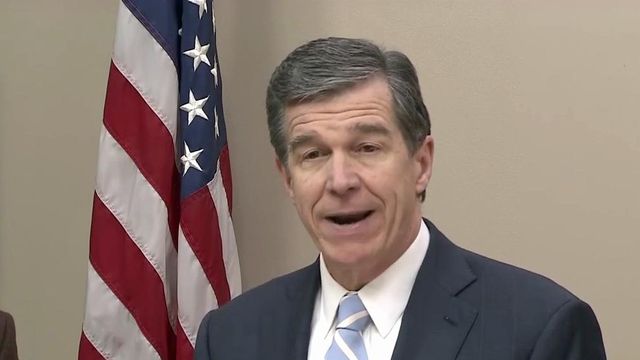Settlement proposed in lawsuit over transgender bathroom access
Gov. Roy Cooper's administration has reached a proposed settlement of a federal lawsuit over transgender access to public bathrooms filed after state lawmakers passed House Bill 2 last year.
Posted — UpdatedThe deal, which still must be approved by a federal judge, would allow transgender individuals to use the bathroom of their choice in public buildings controlled by administrative agencies, including most state offices in downtown Raleigh, highway rest stops and state parks and historic sites, without fear of arrest or prosecution.
Republican legislative leaders, who intervened in the dispute, aren't part of the proposed settlement. Neither is the University of North Carolina system, which was also a defendant in the federal lawsuit, but university administrators had already refused to enforce the bathroom provisions in House Bill 2.
"House Bill 2 has been repealed, and we believe the case should be dismissed," UNC system spokesman Josh Ellis said in an email to WRAL News. "Furthermore, we have a clear nondiscrimination policy and always strive to ensure our institutions are welcoming places for everyone."
The consent decree was negotiated between the plaintiffs and the Cooper administration, and Chris Brook, legal director for the state chapter of the American Civil Liberties Union, which represents the plaintiffs, said lawmakers and UNC system officials declined to sign on.
"We reached out to all parties but ultimately negotiated in earnest with the administration," Brook said.
Legislative lawyers are reviewing both the consent decree in the federal lawsuit and Cooper's executive order, according to a spokeswoman for Senate President Pro Tem Phil Berger. They offered no immediate comment Wednesday, but their response to the court is due Monday, according to Brook.
"It’s not enough to just say we won’t discriminate, we must show it," Cooper said in an online post. "After working with the business community and the LGBT advocacy community, I’m proud to act on our shared belief that people should not face discrimination or harassment because of who they are."
The North Carolina Values Coalition, which supported House Bill 2, said Wednesday evening that Cooper had "betrayed the people of North Carolina."
The law brought national scorn on the state, with businesses scrapping planned expansions, organizations canceling conventions and the NBA, the Atlantic Coast Conference and other groups moving sporting events out of the state.
The proposed consent decree would permanently enjoin the state from using language from that bill "bar, prohibit, block, deter, or impede any transgender individuals from using public facilities" controlled by the executive branch of state government.
"HB 2 and [replacement legislation] HB 142 remain shameful and discriminatory attacks on LGBT people that should never have been signed into law, but under this proposed consent decree, North Carolina would finally affirm the right of transgender people to use facilities that match their gender," Karen Anderson, executive director of the ACLU of North Carolina, said in a statement.
Tami Fitzgerald, executive director of the Values Coalition, said in a statement that Cooper and Attorney General Josh Stein were attempting "a massive power grab" by pushing "sweeping changes that only the Legislative Branch has the authority to enact."
"It is important to note that some of the worst portions of the HB 2 compromise, HB 142, remain on the books and continue to cause real harm to LGBTQ North Carolinians every day," Matt Hirschy, interim executive director of advocacy group Equality North Carolina, said in a statement. "While the executive order issued today is a step in the right direction, the fact remains that a majority of LGBTQ North Carolinians lack protections in housing, employment and public accommodations."
Related Topics
• Credits
Copyright 2024 by Capitol Broadcasting Company. All rights reserved. This material may not be published, broadcast, rewritten or redistributed.





